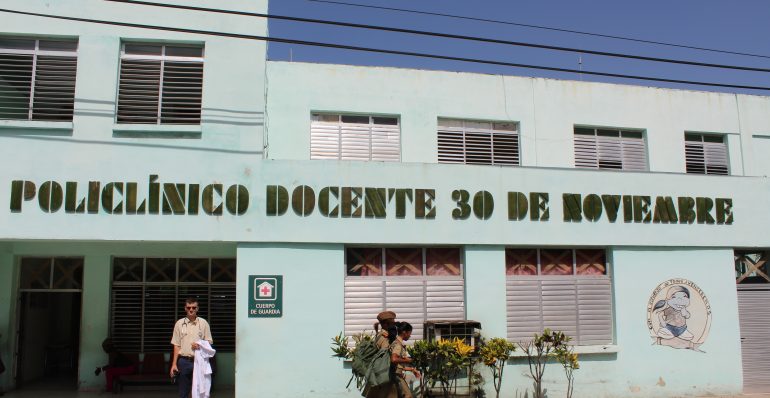
Elective report – Cuba, 2018

21 Jan 19 |
By Fergus Brown, 2018 SCPN bursary recipient
Note from the Editor: The SCPN student bursary was awarded in 2018 to Fergus Brown, a 4th year medical student from the University of Glasgow. The SCPN aims to help students learn more about cancer prevention and how to translate that knowledge to their practice in the future. We offer a £300 bursary to support any piece of non-core curriculum work in the area of cancer prevention which can include an SSC, BMedSci project, an elective, summer experience or work in your own time. If you would like to apply
for this year’s bursary please visit our website.
For my senior elective this year, I spent four weeks in Santiago de Cuba, the nation’s 2nd biggest city. Two of these weeks were spent in the theatre anaesthetics department of Dr Juan Bruno Zayas Alfonso General Hospital, and two in various primary and community care settings. I chose Cuba as I felt it offered a unique opportunity to see a preventative healthcare system and culture.
Cuba spends £762 per head on healthcare, compared to the UKs £3,1051 however its cancer rate is 218 per 100,000 compared to our 2732.
My time in primary care was incredible and where I learned a lot about cancer prevention strategies in place in the country. Cuban healthcare is an explicitly preventative system, with significant resources and teaching time available – with a Dr:patient ratio of 1:133 Cubans compared to 1:354 in the UK. With more time to talk, and a government directive to prioritise disease prevention, Cuban doctors have a serious advantage. Doctors give lifestyle advice and attempt to make every consultation a teachable moment for disease prevention.
Primary care polyclinicos, set within communities, contain numerous services and Cuba has many programs that fit with the European Code Against Cancer, but there is significant room for improvement. Cuba has a deeply entrenched relationship with tobacco and public health policy is lax. Tobacco is cheap – a cigar costs around 4p and 20 cigarettes around 28p.
Cuba has rising obesity rates3. It is undergoing an ‘epidemiological transition’ – mortality from communicable diseases is declining as non-communicable, lifestyle related diseases increase. Cheap alcohol and sugar products are readily available. In addition traditional Creole meals of rice and beans are usually accompanied by fried meats.
Overall I was impressed by Cuban healthcare. I was however saddened by limitations placed by geopolitical factors. The USA embargo is estimated to have cost Cuba $130 billion4. If it ended, it’s easy to say Cuba could be one of the worlds healthiest countries.
My elective in Cuba was amazing. A huge thanks to the SCPN for their support for this incredible opportunity.
To read the full report please visit https://thescpn.org/2Fl9pPH.
References
-
Global Health Expenditure Database [Internet]. Apps.who.int. 2018. Available from: http://apps.who.int/nha/database/Home/Index/en
-
Global cancer data by country [Internet]. World Cancer Research Fund. 2018. Available from: http://www.wcrf.org/int/cancer-facts-figures/data-cancer-frequency-country
-
Nie P, Alfonso Leon A, Díaz Sánchez M, Sousa-Poza A. The rise in obesity in Cuba from 2001 to 2010: An analysis of National Survey on Risk Factors and Chronic Diseases data. Economics & Human Biology. 2017;28:1-13.
-
Acosta N, Marsh S. U.S. trade embargo has cost Cuba $130 billion, U.N. says [Internet]. Reuters. 2018. Available from: https://uk.reuters.com/article/us-cuba-economy-un/u-s-trade-embargo-has-cost-cuba-130-billion-u-n-says-idUKKBN1IA00T